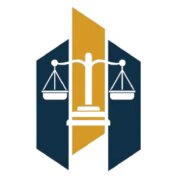Best Animal Law Lawyers in Argentina
Share your needs with us, get contacted by law firms.
Free. Takes 2 min.
Or refine your search by selecting a city:
List of the best lawyers in Argentina
About Animal Law in Argentina
Animal Law in Argentina is a dynamic and evolving field that focuses on the legal protections and rights afforded to animals within the country. The legal framework includes a combination of national legislation, provincial regulations, and international agreements aimed at ensuring the humane treatment and welfare of animals. The issue of animal rights has gained significant attention in recent years, encouraging legislation that addresses animal cruelty, companion animal welfare, and wildlife protection. Argentina is also a signatory to various international conventions that promote animal welfare and biodiversity conservation.
Why You May Need a Lawyer
There are several circumstances in which individuals or organizations in Argentina may require legal assistance in the field of Animal Law. Common situations include:
- Facing charges related to animal cruelty or neglect.
- Disputes over pet ownership or custody.
- Issues surrounding the adoption or sale of pets.
- Compliance with wildlife protection laws for businesses or private individuals.
- Seeking to influence policy or legislation in favor of animal welfare.
- Handling cases related to damages or injuries caused by animals.
Local Laws Overview
Argentina's legal framework for animal law includes several key pieces of legislation:
- The National Animal Protection Law (Law 14346) which prohibits acts of cruelty against animals and prescribes penalties for such offenses.
- Local ordinances that may govern pet ownership, mandatory registrations, and responsible pet ownership within different provinces or municipalities.
- Provisions under the Argentine Civil Code that relate to the status of animals as sentient beings rather than mere property.
- Environmental regulations that protect biodiversity and the habitats of wild animals.
Enforcement of these laws varies across regions, with urban areas often having more robust animal protection measures in place compared to rural areas.
Frequently Asked Questions
1. What is the penalty for animal cruelty in Argentina?
Under the National Animal Protection Law, penalties for animal cruelty range from fines to imprisonment, depending on the severity of the offense.
2. Are there specific laws for wildlife protection in Argentina?
Yes, Argentina has several laws and regulations to protect wildlife, including national parks legislation and environmental protection laws that prohibit poaching and trafficking of endangered species.
3. Can I take legal action if my pet is harmed by someone else?
Yes, you can pursue civil action for any harm caused to your pet. Legal remedies may include seeking compensation for veterinary expenses and damages for emotional distress.
4. Do I need to register my pet in Argentina?
Pet registration requirements vary by province and municipality. It's important to check local regulations to ensure compliance with any registration or licensing requirements.
5. What are my rights if I adopt a stray animal?
Adopting a stray animal affords you the same legal rights as with any other pet, including the right to seek veterinary care and the responsibility of ensuring the animal's welfare.
6. How can I report animal abuse?
Reports of animal abuse can be made to local law enforcement, animal protection organizations, or municipal authorities depending on the jurisdiction.
7. Are there restrictions on owning exotic pets?
Yes, Argentina has regulations that restrict or prohibit the ownership of certain exotic species. It's important to consult with local authorities to understand these restrictions.
8. Can animals be considered property in legal disputes?
While historically animals were viewed as property, Argentine law increasingly recognizes their sentient status, impacting their treatment in legal disputes.
9. What should I do if my animal-related business is accused of breaching animal welfare laws?
It is advised to consult with a lawyer specializing in animal law to ensure compliance with regulations and to address any legal challenges effectively.
10. Are there community resources for low-cost veterinary care?
Some non-profit organizations and local municipalities offer low-cost or subsidized veterinary services; it is worth researching these resources in your area.
Additional Resources
For additional support and information, consider contacting the following organizations:
- The Argentine Society for the Protection of Animals (SAPA) which provides resources and advocacy for animal welfare.
- The Ministry of Environment and Sustainable Development for information on wildlife laws and regulations.
- Local animal shelters and rescue organizations that can provide guidance on pet adoption and welfare issues.
Next Steps
If you find yourself in need of legal assistance concerning Animal Law in Argentina, here are some steps to follow:
- Document all relevant information and evidence related to your case.
- Contact a lawyer who specializes in animal law, as they will have the specific expertise needed to handle your case effectively.
- Research available legal aid services if affordability is a concern.
- Engage with local animal rights organizations, as they may offer additional guidance or support.
By taking these steps, you can ensure that you are well-prepared and supported in navigating the legal intricacies of Animal Law in Argentina.
Lawzana helps you find the best lawyers and law firms in Argentina through a curated and pre-screened list of qualified legal professionals. Our platform offers rankings and detailed profiles of attorneys and law firms, allowing you to compare based on practice areas, including Animal Law, experience, and client feedback.
Each profile includes a description of the firm's areas of practice, client reviews, team members and partners, year of establishment, spoken languages, office locations, contact information, social media presence, and any published articles or resources. Most firms on our platform speak English and are experienced in both local and international legal matters.
Get a quote from top-rated law firms in Argentina — quickly, securely, and without unnecessary hassle.
Disclaimer:
The information provided on this page is for general informational purposes only and does not constitute legal advice. While we strive to ensure the accuracy and relevance of the content, legal information may change over time, and interpretations of the law can vary. You should always consult with a qualified legal professional for advice specific to your situation.
We disclaim all liability for actions taken or not taken based on the content of this page. If you believe any information is incorrect or outdated, please contact us, and we will review and update it where appropriate.
Browse animal law law firms by city in Argentina
Refine your search by selecting a city.














